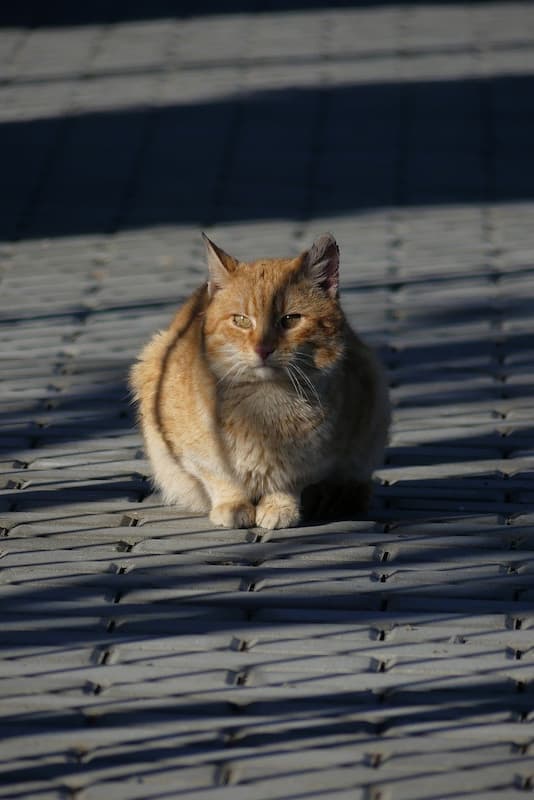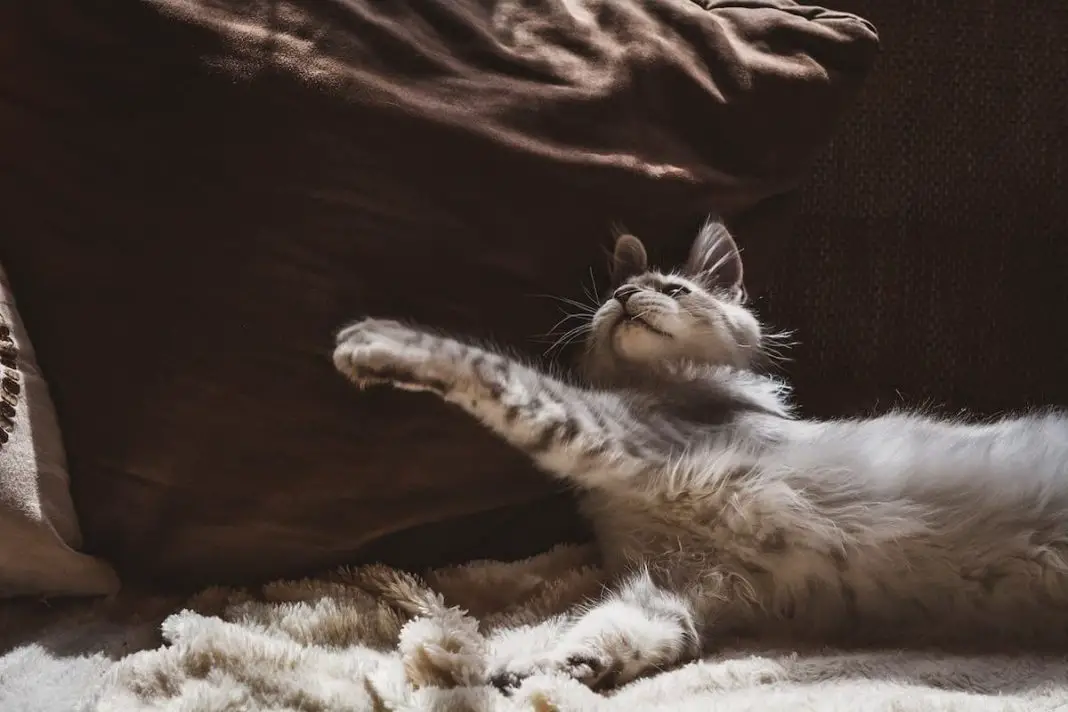It’s not recommended to allow your cat to roam freely if it spends most of the time inside. If you ever decide to let your cat go outside, you need to keep an eye on it at all times.
In a situation where an indoor cat gets lost, it’s highly unlikely that it would survive for more than a few days or weeks – it’s unlikely that an indoor cat will get the food they need, as they rarely have the skills necessary to fend for themselves. Usually, outdoor cats rarely reach the age of 5.
Can House Cats Survive In The Wild?
Cats that have never lived outside simply don’t have the necessary skills they need to survive in the wild. Instinctively, they may find some shelter and some food, but their life expectancy would be drastically shortened.
It’s unlikely that a domestic cat would be able to survive outside for a considerable amount of time. While cats that have never had the chance to hunt may have the natural inclinations, it doesn’t mean that they would be able to hunt an animal and eat it.
Another example is if your cat is declawed, it’s going to struggle even more as it won’t be able to properly defend itself.

Can House Cats Survive Outside In The Winter?
If an indoor cat was able to find a warm shelter, then it may be able to survive. Although, it’s likely that the cat will most likely die if it is left on the streets while it’s cold outside.
If the weather got bad, it wouldn’t take long for the cat to start suffering from hypothermia.
How Long Can An Indoor Cat Survive Outside In The Winter?
If it’s extremely cold outside, the cat could freeze to death in as little as 3-4 days. While long-haired breeds might survive for a little longer.
How Cold Is Too Cold For An Indoor Cat When Outside?
Anything below 45 degrees is way too cold for a cat, even if it has been living outdoors. In case it gets that cold, you would have to bring the cat inside to prevent frostbite or any other unpleasant consequences.
What’s The Life Expectancy Of Indoor Vs Outdoor Cats?
Indoor cats have a considerably higher life expectancy compared to outdoor cats. While an indoor cat could live for 15-17 years, outdoor cats rarely reach the age of 5.
Could An Indoor Cat Find Its Way Home?
Yes, it’s possible, given that all cats have a ‘homing instinct’ – a special ability that can help them find their way home.
Cats have an amazing sense of smell and one of the widely supported theories suggests that cats leave special smell markers wherever they go. Another theory suggests that cats are able to use the geomagnetic field to locate their home (cats have a ‘fix’ on their residence, no matter how far they have travelled).
With that being said, just like humans, some cats are much better at using all these senses to figure out where to go, while others aren’t as good at it.
Can Indoor Cats Remember Where They Live?
Generally speaking, cats remember where they live, and if you leave a cat to roam around outside, it should be able to find its way back home.
As previously mentioned, cats mark their territory by spraying or rubbing against various surfaces (such as stairs and porches). These familiar scents help them find the house that they live in.
Will My Indoor Cat Come Back If I Let It Outside?
There’s a good chance that your cat will come back home if it had enough time to get acquainted with the territory.
Most cats that are let outside for the first time will carefully explore the garden or the backyard for only a few minutes before looking to go back inside.
How Far Would An Indoor Cat Stray?
Although a cat can travel for very long distances, they will usually stay within a 3-4-hour radius of their house.
However, the majority of cats prefer to explore their territory a lot closer to home. Studies have shown that missing cats that have access to the outdoors rarely stray farther than a little more than the length of three football fields.
Although when it comes to indoor cats, they hardly ever travel farther than 128 feet away from their beloved home.
Why Do Indoor Cats Run Away?
A cat is more likely to run away if it’s:
- In heat
- About to give birth
- Hunting
- Looking for more territory to conquer
- They’re sick or wounded
- Before passing away
An indoor cat will also run away if they get scared. Unexpected loud noises, for example, may frighten a cat, making it sprint off.
What Should You Do If Your Indoor Cat Gets Lost?
Make sure that your cat isn’t hiding inside. If you believe that your cat is actually missing, then you should start acting as soon as possible.
A physical search seems to be the best possible solution – the chances of finding your cat close to home are quite high.
If your cat has been microchipped or has a GPS tracker on its collar, it should be a lot easier for you to find – it’s why veterinarians recommend investing in such a ‘safety measure’, just in case.
Indoor Cats Have A Simpler Life Than Their Wild Counterparts
It’s no secret that the wild outdoors holds many dangers for an outdoor cat on its own. After all, an indoor cat doesn’t face the increasing number of cars, toxins, parasites and instances of animal cruelty that a roaming outdoor cat may experience. It’s why cat experts typically urge owners to keep their cats indoors. But that’s not always easy.
The Perks Of Being An Indoor Cat
The more comfortable life an indoor cat has, the more it significantly increases its lifespan. An indoor cat can live 15-17 years, whereas the life expectancy for outdoor cats is only 2-5 years.
Should An Indoor Cat Have Outdoor Time?
The main reason cats enjoy the outdoors is that it takes them back to their natural roots. It’s important for owners to remember that cats are nocturnal, and when they’re in the wild, they hunt all night and sleep all day. It’s possible for an indoor cat to get bored and can get anxious being kept inside all the time if it isn’t getting enough stimulation. The most important thing is to make sure your indoor cat is stimulated for their mental health.
Although an indoor cat (or a restrained outdoor cat) won’t be doing much hunting, you can still resemble that activity with a variety of cat toys, using feather wand cat toys. Providing your indoor cat with cat scratchers and cat trees is also a great idea. Your cat should also have added levels with cat trees or a cat window perch gives cats a higher point to view their territory and their own place to explore, climb, knead and take cat naps on.
For owners that want to provide their indoor cats with some outdoor time, there are harnesses specifically made for indoor cats. They’re designed to fit cats, preventing them from wriggling loose, although they do require training to get your cat comfortable and willing to walk.
Why You Should Talk With A Veterinarian Before Letting An Indoor Cat Have Outdoor Time
If an indoor cat spends any amount of time outdoors, no matter how limited or infrequent, the cat owner should mention it to their veterinarian so they can discuss potential health risks to ensure the cat is properly protected from diseases and parasites.








